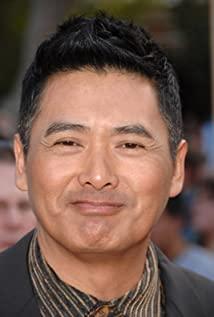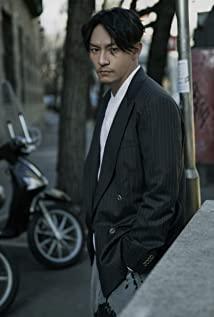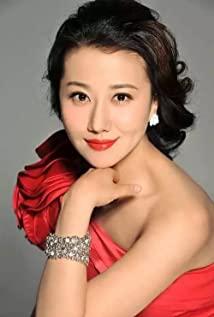I found an old manuscript by accident, which is a bit unexpected. I hope there are more old manuscripts to be found.
Who's Crouching Tiger
, Hidden Dragon
? On January 22, the famous Chinese director Ang Lee, with his new work "Crouching Tiger, Hidden Dragon", was in the United States, known as the "Oscar Award Weathervane". In the Golden Globe Awards, he won the Best Foreign Language Film Award and the Best Director Award. Since "Sense and Sensibility" failed to hit the Oscar for Best Foreign Language Film in 1995, Ang Lee is more realistically approaching the Oscar, the most eye-catching award for filmmakers in the world. Historic Breakthrough", praising Ang Lee's success.
Just like Zhang Yimou's "Red Sorghum" won the Golden Bear Award at the Berlin Film Festival, Ang Lee's success, as a sign of the progress of Chinese-language films, has aroused many discussions among fans and film critics-a lot of praise and criticism. There are even many more "small words and righteousness". The most common view is that "Crouching Tiger, Hidden Dragon" is really not very good, and it is sought after only because it won an award. Reading only made them optimistic about the film, and Ang Lee just catered to the taste of foreigners.
Is that so? What is the meaning of Ang Lee? Whose mentality is wrong?
It is not wrong to say that Chinese people value winning or not. When Zhang Yimou's "No One Can Be Missed" came out, many film critics criticized it for nothing, and after winning the Palme d'Or at the Venice Film Festival, some of them praised it like crazy. There are many people like this, because we are accustomed to the days of superstitious authority. For two thousand years, it has been the days of "The Six Classics Note Me, I Note the Six Classics", can you? Let him change it right away? In fact, we not only value whether or not to win an award, but also what kind of award we get. For example, Feng Xiaogang's "A Sigh" won an award at the Cairo Film Festival, and there was news that some people looked down on it: "What kind of award is that?" To put it bluntly, it is still superstitious authority, and famous authority is greater, so there is such a saying. Of course, there are also those who fight for Feng Xiaogang. They have won awards from foreign countries, so why can't they win the Golden Rooster Award from our own evaluation? The implication is that there is a problem with the vision of our judges, and the mentality of this statement is actually the same as the previous one.
But it's not entirely wrong to value winning. Because although there are no poems, different people may have different opinions on the same thing, but there are no standards for evaluating a work. Some film festivals are famous, and it is very important that their standards for evaluating works are well-received. recognized by most people. In this sense, it is understandable to value winning. Having said that, does contempt for other people's awards mean that you are smart? This approach is undoubtedly a bit absurd.
Therefore, the crux of the question is not whether we value winning the award or not, but what attitude do we have to face not winning the award. If you can't see someone else winning an award, you can say yes to what you think is bad, or you can say that the judges have a problem when you think it's bad. A more rational attitude is to calmly think about your own standards and others' standards, Who is more in line with the trend. For example, several of Zhang Yimou and Chen Kaige’s films are fragrant inside the wall. Does it mean that they, as directors with international influence, have a deeper understanding of the direction of movies than many people in China? Finding one's own gaps from this kind of reflection is more meaningful than cheap praise or righteous criticism.
Frankly speaking, personally, I think Crouching Tiger, Hidden Dragon is too different from the martial arts films in my mind: too lyrical, martial arts scenes as delicate as embroidery, too little masculine, and rhythm It's too slow, and many of the pictures are too dark, like watching an old movie, but it's not enjoyable to watch. In fact, its response in China is indeed not very good. Even with Chow Yun-fat's appeal, its performance at the box office is really unsatisfactory. However, "Crouching Tiger, Hidden Dragon" was surprisingly good at the box office in the United States, breaking into the top 10 grossing at one point. A Chinese-language film could achieve such an effect, which was unimaginable before. Many years ago, when Zhang Yimou's "Raise the Red Lantern" was nominated for the Academy Award for Best Foreign Language Film, someone wrote "For Whom the Red Lantern? " criticized him, saying it was "post-colonialism" and "exposing the dark side of the Chinese people to satisfy the curiosity of foreigners." There are various opinions, but to say the worst is to accuse him of being a foreign slave. Therefore, it is not unreasonable for some people to accuse "Crouching Tiger, Hidden Dragon" of "catering to the appreciation of Americans". Otherwise, why do Chinese people prefer to watch movies made by Americans? Compared with the criticism of Zhang Yimou, this kind of accusation is much lighter after all.
In fact, this kind of dislocation caused by cultural differences is actually quite normal. "Horse Whisperer" is nothing more than a bestseller in its own country. Don't many of us think it is very artistic? Compared with famous dramas such as "Dou E's Injustice" and "The Story of the West Chamber", if "The Orphan of Zhao" did not cause a sensation in Europe, how many Chinese people would know about it? We certainly hope to introduce and spread our own culture to the West with our accustomed standards and methods, but ignoring cultural differences, such efforts can only be ineffective labor. "Crouching Tiger, Hidden Dragon" is popular with Americans, proving that it has found a way to express traditional Chinese culture to Americans. I think the question is not whether it "appeals to American tastes", but whether we wishful thinking and promoting our own culture with our own inherent standards should be re-examined.
Hou Hsiao-hsien, Yang Dechang, and Ang Lee in Taiwan, Zhang Yimou and Chen Kaige in mainland China, Tang Jili, John Woo, and Wong Kar-wai in Hong Kong... In the past 20 years at the end of the 20th century, Chinese directors have formed their own strong camp in the international film circle. This time, Ang Lee's entry into the most influential awards in the world film industry is an important step for Chinese-language films in the 21st century. Zheng Quangang, the producer of "Crouching Tiger, Hidden Dragon", said that Ang Lee's award "breaks the record that the Golden Globe Award for Best Director has never been touched by a director outside the United States", which proves that in the era of globalization of movies, Chinese directors have strong competitive strength. From the perspective of promoting Chinese culture to the world, Ang Lee's award has far-reaching significance. Of course, the reason why Americans gave up their arrogance and prejudice this time is not only because of their own strengths of Chinese directors, but also because of their implementation of a globalization strategy. A considerable part of the investment in "Crouching Tiger, Hidden Dragon" came from abroad, and the use of Chinese-language directors can not only bring new vitality to Hollywood, but also an important means for them to open up the Chinese market. Compared with other blockbusters, John Woo's "Broken Arrow" did not do well at the box office in the United States, but it is still ok in China. Therefore, we should not only have the mind and magnanimity to go to the world, but also be vigilant not to become a working man in Hollywood. (Chen Kaige's new film "The Gentle Killer" is completely invested by Hollywood and made for Americans.), in the development of national films work harder on the way.
View more about Crouching Tiger, Hidden Dragon reviews










